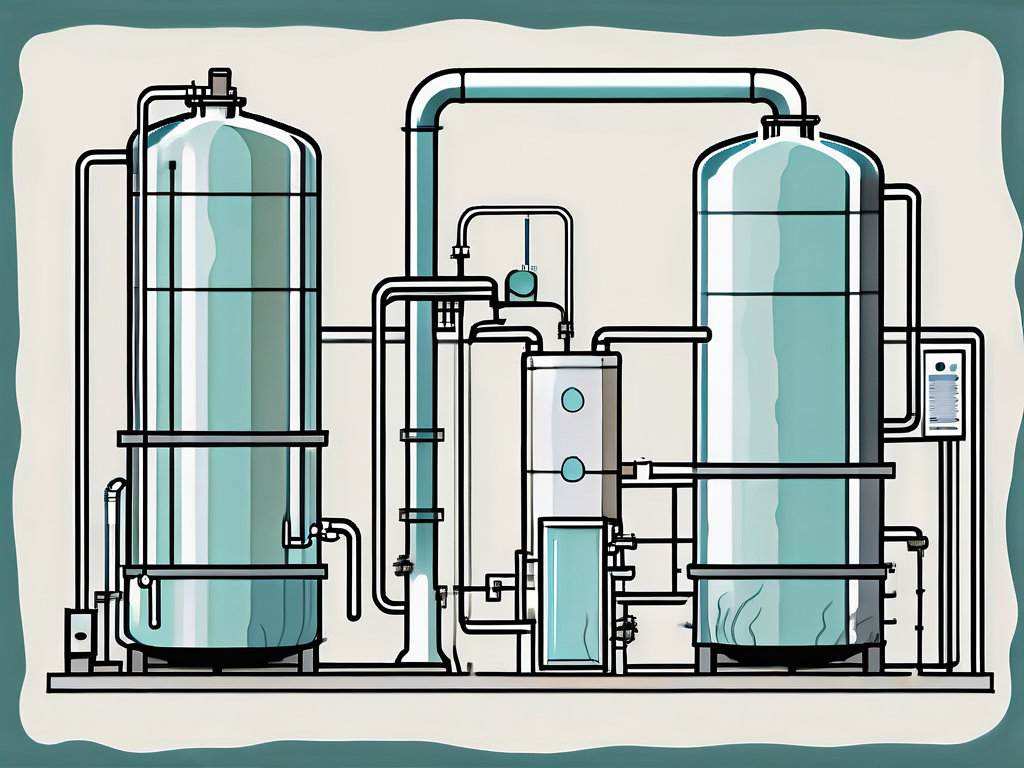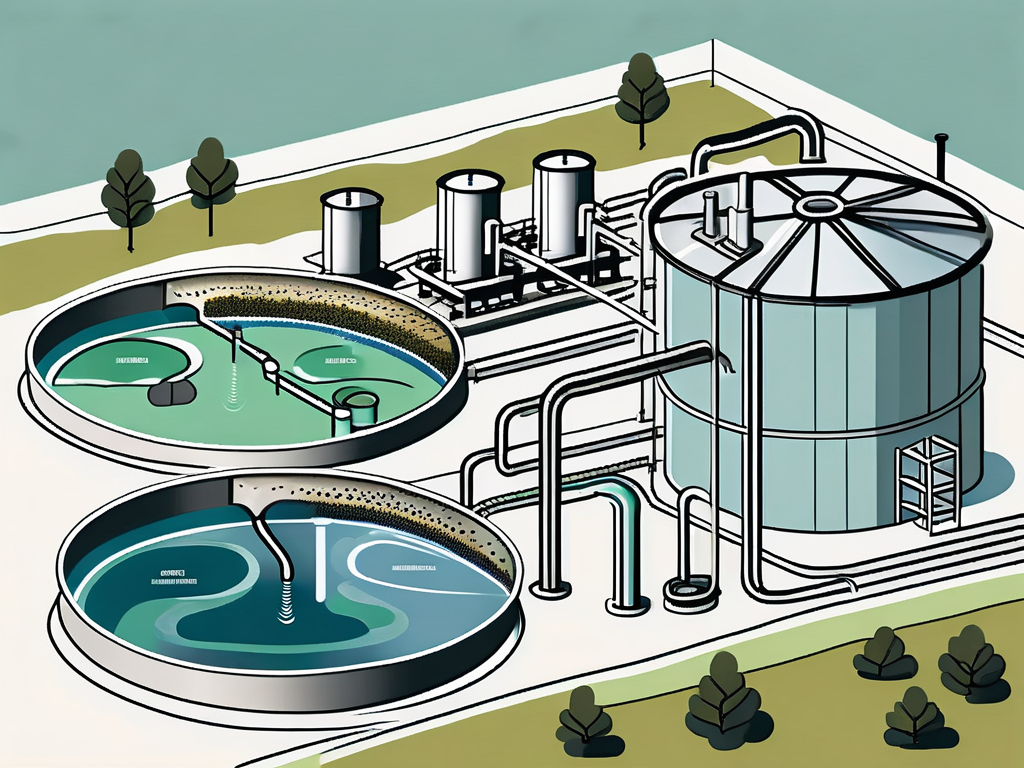
Wastewater Operator: Wastewater Treatment Explained
The role of a wastewater operator is crucial in maintaining the health and safety of both people and the environment. This role involves the management and operation of wastewater treatment plants, which are facilities designed to clean used water so it can be safely returned to the environment. This article will delve into the intricacies of wastewater treatment, explaining the various processes and technologies involved, and the responsibilities of a wastewater operator in overseeing these processes.
Wastewater treatment is a complex process that involves a combination of physical, chemical, and biological methods to remove contaminants from water. The goal is to produce an effluent, or treated water, that is safe enough to be discharged back into the environment, and a solid waste or sludge that can be disposed of or reused in a safe manner. The specific processes used can vary depending on the type of wastewater being treated and the level of treatment required.
Understanding Wastewater
Before we delve into the treatment processes, it's important to understand what wastewater is and why it needs to be treated. Wastewater is essentially used water that comes from homes, businesses, and industries. It includes substances such as human waste, food scraps, oils, soaps, and chemicals. In many cases, it also includes rainwater runoff.
Wastewater is a major potential source of pollution for our waterways and oceans. If not properly treated, it can harm aquatic life and pose a risk to human health. The treatment of wastewater is therefore a critical process in protecting our environment and ensuring the sustainability of our water resources.
Types of Wastewater
There are several types of wastewater, each with its own unique set of challenges for treatment. The main types are domestic wastewater, also known as sewage, which comes from homes and businesses; industrial wastewater, which comes from manufacturing and industrial processes; and stormwater runoff, which is rainwater that runs off streets and other surfaces.
Each type of wastewater contains different types of contaminants. For example, domestic wastewater is typically high in organic material and nutrients, while industrial wastewater can contain a wide range of chemicals depending on the industry. Stormwater runoff can pick up a variety of pollutants, including oil and grease from roads, pesticides from gardens and farms, and litter.
The Wastewater Treatment Process
The wastewater treatment process is typically divided into three stages: primary treatment, secondary treatment, and tertiary treatment. Each stage is designed to remove or reduce certain types of contaminants, and the specific processes used can vary depending on the type of wastewater and the level of treatment required.

It's important to note that not all wastewater treatment plants perform all three stages of treatment. Some smaller plants may only perform primary and secondary treatment, while others may include additional treatment processes to remove specific contaminants.
Primary Treatment
Primary treatment is the first stage of the wastewater treatment process. The goal of primary treatment is to remove large solids and other materials that can be easily collected from the wastewater. This is typically done using physical processes such as screening and sedimentation.
Screening involves passing the wastewater through screens to remove large objects such as rags, sticks, and other debris. Sedimentation involves allowing the wastewater to sit in a tank or basin so that solids can settle to the bottom. The settled solids, known as sludge, are then collected and treated separately.
Secondary Treatment
Secondary treatment is the second stage of the wastewater treatment process. The goal of secondary treatment is to remove organic material and nutrients from the wastewater. This is typically done using biological processes, although chemical processes can also be used.
Biological treatment involves using microorganisms to break down organic material in the wastewater. This can be done in a variety of ways, including activated sludge processes, trickling filters, and lagoons. In some cases, secondary treatment also includes processes to remove nutrients such as nitrogen and phosphorus, which can cause problems if released into the environment.
Tertiary Treatment
Tertiary treatment, also known as advanced treatment, is the third stage of the wastewater treatment process. The goal of tertiary treatment is to further improve the quality of the wastewater before it is discharged. This can involve a variety of processes, including filtration, disinfection, and the removal of specific contaminants.
Filtration involves passing the wastewater through a filter to remove small particles. Disinfection involves killing or inactivating harmful microorganisms in the wastewater, typically using chemicals such as chlorine or ultraviolet light. Other processes can be used to remove specific contaminants, such as heavy metals or certain types of organic chemicals.
The Role of the Wastewater Operator
The wastewater operator is responsible for overseeing the wastewater treatment process and ensuring that the treated water meets all relevant standards and regulations. This involves a wide range of tasks, including monitoring and adjusting treatment processes, performing routine maintenance and repairs, and conducting tests to assess water quality.

Wastewater operators need a strong understanding of the principles of wastewater treatment, as well as the ability to operate and maintain complex equipment. They also need to be able to respond to emergencies, such as equipment failures or spills, and to work safely with hazardous materials and conditions.
Monitoring and Adjusting Treatment Processes
One of the main tasks of a wastewater operator is to monitor the treatment processes and make adjustments as needed. This involves checking equipment and control panels, taking samples of the wastewater and treated water, and conducting tests to assess water quality. Based on these observations and test results, the operator may need to adjust the treatment processes to ensure that the treated water meets all relevant standards.
Monitoring and adjusting treatment processes requires a strong understanding of the principles of wastewater treatment, as well as the ability to interpret test results and make decisions based on these results. It also requires a high level of attention to detail, as small changes in the treatment processes can have a big impact on the quality of the treated water.
Performing Routine Maintenance and Repairs
Another important task of a wastewater operator is to perform routine maintenance and repairs on the treatment plant equipment. This can involve a wide range of tasks, from cleaning screens and tanks to replacing worn-out parts. In some cases, the operator may also need to troubleshoot and repair more complex problems with the equipment.
Performing routine maintenance and repairs requires a good understanding of how the equipment works, as well as the ability to use a variety of tools and equipment. It also requires the ability to work safely with hazardous materials and conditions, as many parts of the treatment plant can be dangerous if not handled properly.
Conducting Tests to Assess Water Quality
Conducting tests to assess water quality is another important task of a wastewater operator. These tests can include a wide range of parameters, from basic measures such as temperature and pH to more complex tests for specific contaminants. The results of these tests are used to monitor the effectiveness of the treatment processes and to ensure that the treated water meets all relevant standards.
Conducting water quality tests requires a good understanding of the principles of water chemistry, as well as the ability to use a variety of testing equipment and techniques. It also requires a high level of attention to detail, as small errors in the testing process can lead to inaccurate results.
Conclusion
The role of a wastewater operator is critical in protecting our water resources and the environment. By overseeing the treatment of wastewater, these professionals ensure that used water is cleaned and returned to the environment in a safe manner. This not only protects aquatic life and human health, but also helps to ensure the sustainability of our water resources.
While the work of a wastewater operator can be challenging, it is also rewarding. These professionals play a key role in protecting our environment and public health, and their work is essential in maintaining the quality of our water resources. Whether you're a wastewater operator or just interested in learning more about the process, understanding the intricacies of wastewater treatment is a valuable step toward a more sustainable future.



